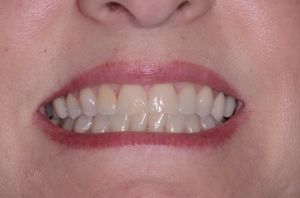Have you ever heard someone say, “I would rather have a root canal”? Most of us are used to hearing root canals compared to some genuinely unpleasant circumstances, but Dr. Nathan Saydyk would like to set the record straight and talk about how root canals can do some serious dental good.

Root Canals Save Teeth
Here it comes, the question on everyone’s mind: “Why on Earth would you want a root canal?!” There is one thing all dentists will agree on—saving your natural teeth is always the best option. There are many ways that Dr. Nathan Saydyk can replace missing or damaged teeth, but nothing is as good as the real thing.
If you have a tooth with inflamed or infected pulp, a root canal can eliminate the infection and save it. Thus, root canals are preferable to extraction. Here are some more advantages of endodontic root canal treatment:
- Natural appearance
- Efficient chewing
- Tolerance of normal bite force and sensation
- Surrounding teeth are protected from extra wear and/or strain
Root Canals Get Rid of Pain
Perhaps if you had a root canal before modern techniques and anesthetic options, it would live up to its reputation. Fortunately, that is no longer the case today. If you have had a root canal, you are six times more likely to say that it was “painless” than those that have never experienced the procedure.
The truth is, root canals eliminate pain by removing infected, damaged tissues. When Dr. Nathan Saydyk performs a root canal they clean out the infection, sterilize the inside of the tooth, uses a rubber sealant to fill the gap, and then place a crown or filling on top to protect the tooth. Once it is done, the tooth functions just like its neighbors. Voilà, your tooth is now healthy again!
At Stoneridge Dental, we love changing people’s minds about root canals, so please contact us to find out if you can benefit from this treatment. Maybe then you’ll start saying, “That was almost as pleasant as a root canal!”
The content of this blog is not intended to be a substitute for professional medical advice, diagnosis, or treatment. Always seek the advice of qualified health providers with questions you may have regarding medical conditions.



